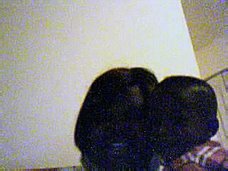Reggae is a music genre developed in Jamaica in the late 1960s. The term is sometimes used in a broad sense to refer to most types of Jamaican music, including ska, rocksteady and dub. The term is more specifically used to indicate a particular style that originated after the development of rocksteady. In this sense, reggae includes two subgenres: roots reggae (the original reggae) and dancehall reggae, which originated in the late 1970s.
Reggae is founded upon a rhythm style characterized by regular chops on the off-beat, known as the skank. The tempo is generally slower than that found in reggae's precursors, ska and rocksteady.
Reggae is often associated with the Rastafari movement, which influenced many prominent reggae musicians in the 1970s and 1980s. Reggae song lyrics deal with many subjects, including faith, love, sexuality and broad social issues.
Reggae's origins are in traditional African and Caribbean music; American rhythm and blues; and Jamaican ska and rocksteady. In 1963, Coxsone Dodd of Studio One asked Jackie Mittoo (pianist of The Skatalites) to run recording sessions and compose original music. Mittoo, with the help of drummer Lloyd Knibbs, turned the traditional ska beat into reggae by slowing down the tempo. Bob Marley, who played an important role in popularizing reggae worldwide, recorded ska, rocksteady, and nyabinghi-drumming records early in his career. By the late 1960s, reggae was getting radio play in the United Kingdom on John Peel's radio show.
The word reggae may have been first used by the ska band Toots and the Maytals, in the title of their 1968 hit Do the Reggay. Other theories are the term came from the word streggae, a Jamaican slang term for prostitute, or that it originated from the term Regga, which was a Bantu-speaking tribe from Lake Tanganyika.
Subscribe to:
Post Comments (Atom)





No comments:
Post a Comment